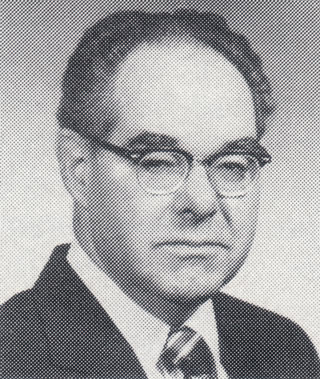
 |
Search | FAQ | US Titles | UK Titles | Memories | VaporWare | Digest | |||||||
| GuestBook | Classified | Chat | Products | Featured | Technical | Museum | ||||||||
| Downloads | Production | Fanfares | Music | Misc | Related | Contact | ||||||||
| Memories of VideoDisc - Who's Who in VideoDisc | ||||||||||||||

Richard C. Palmer received the BEE degree from the University of Virginia in 1943 and did subsequent graduate work in Physics at the Stevens Institute of Technology. After one year with the General Electric Co., Schenectady, NY and two years with the Tennessee-Eastman Corp., Oak Ridge, Tenn., he joined the Allen B. DuMont Laboratories where he worked in the fields of television studio equipment, television cameras, color television, phototubes, and television display devices, He joined the RCA Laboratories as a Member of the Technical Staff in 1960, and has pursued research in the fields of television displays and VideoDisc systems.
Mr. Palmer served on Panel 12 of the National Television Systems Committee and on various committees of the IRE and has been granted over 20 patents. He has received three RCA Laboratories Outstanding Achievement Awards and is a member of IEEE, Sigma Xi, and Tau Beta Pi Societies.
- RCA 1982 Company Biography
Richard Palmer was awarded US Patent No. 3711641 on January 16, 1973 for his early work on the CED system. This was one of the first three CED patents applied for on March 22, 1971, exactly 10 years before the market introduction of the RCA VideoDisc system. The other two patents applied for that day were awarded to Jon Clemens and Thomas Stanley.
Aside from my father's work at RCA, which is nicely summarized, I'd like to share some personal memories and observations.
Richard C. Palmer was a renaissance man. His interests were varied and his solutions to problems around the house were ingenious.
His primary hobby was classic and antique cars and his collection extended from a 1929 Rolls Royce to a 1949 Bentley Mark VII Park Ward Convertible Coupe to many late 40's Lincoln Continentals to a 1964 Ferrari GT 330 2+2.
He taught himself welding and went to a technical school at night to learn auto bodywork and painting in order to repair the rusted fender on one of his '48 Lincolns.
The Ferrari was purchased with the engine out and fully disassembled. His rebuild of the engine involved ingenuity and patience as he carefully figured out which 24 nuts went on which 24 bolts for the connecting rods so that when properly torqued the safety wire holes would line up and allow the bottom end to be properly safety wired. I still have the notes and diagrams of his tests and measurements.
He used his electrical engineering knowledge to improvise a tester out of an old spark plug that I believe used capacitance to sense the distance of the piston so he could accurately locate top dead center and time the cams.
To my mother's anxiety, his appreciation for mechanical devices resulted in his owning several motorcycles. Similar to his experience with the Ferrari, he purchased a basket case 1946 Indian Chief to rebuild. When it first arrived, the only identifiable portion was the frame. Everything else was dis-assembled into about a dozen crates.
He periodically rode this beast to work, but the foot clutch and suicide hand shifter were too dissimilar from his BMW R-60 for him to feel comfortable and it was eventually sold. The BMW came to the house with a blown engine suffered as the result of an oil pump failure and was lovingly rebuilt to as new condition.
I could go on with his mechanical exploits, the go-kart we built, the new shortblock we put into the station wagon together, etc, etc. I've clearly inherited his love (or is it an addiction?) for automobiles.
Even though he was a pioneer and worked in the television industry, he rarely watched tv. The whole family would watch Star Trek, but he much preferred puttering, building, restoring and experimenting in his workshop.
He was also a man of extraordinary generosity who would go to any length to help a friend.
My two biggest regrets are that he did not live long enough to meet his wonderful granddaughter, Catherine Theodosia Palmer, and that he didn't live long enough to see the widespread proliferation of the personal computer and the Internet -- two inventions I'm sure he would have greatly appreciated.
The RCA Videodisc truly was a monumental technical achievement, as well as stark testimony to the clash of ideas in the marketplace and the extreme risk and reward inherent to capitalism.
- Randall H. Palmer (February 2004)
Search for patents issued to Richard Claxton Palmer.
If you have some additional information to supply on Richard Palmer, feel free to submit the form below, so your comments can be added to this page.
Send your comments in email via the Contact page